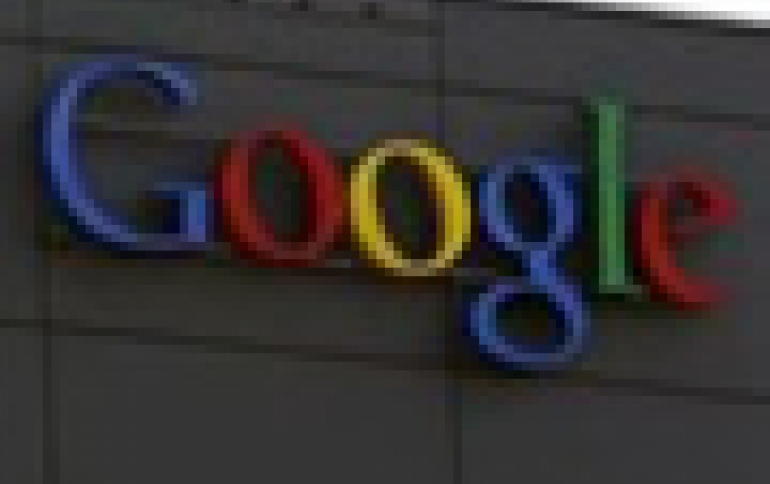
Consumer Group Blasts Google's European Antitrust Offer
Google's offer to settle a European investigation into the alleged abuse of its dominant positions in online search and advertising was described by critics as "a new form of abuse."
European regulators have asked Google's rivals whether the Internet search engine's revised proposals to settle the antitrust case will boost their bargaining power in commercial negotiations.
Previously, the European Union's competition commissioner, Joaquin Almunia, had praised Google's latest proposal as a "significant improvement" from earlier versions and appears to be near a decision to approve it.
Google has promised to post more prominent links to rival shopping, travel and restaurant sites when a user searches for content, as well as reduce the minimum price advertisers can offer to pay for paid ads.
However, Google competitors and some consumer groups are fiercely critical of the plan.
The U.S. consumer rights group Consumer Watchdog has challenged Google to make public its latest proposal to settle the European Commission?s antitrust investigation by Wednesday, or the public interest group said it would release the proposed deal itself.
"I am writing on behalf of Consumer Watchdog to challenge you to hold your company to the same standards of behavior as you unilaterally impose on everyone else," wrote John M. Simpson Privacy Project Director in a letter to Google CEO Larry Page. "Google claims its 'mission is to organize the world's information and make it universally accessible and useful.' You do an amazing job of this -- including making public much of what people would prefer be kept private -- except when the information is about Google."
Simpson described Google's approach as 'hypocritical'.
"We will provide detailed comments soon. For now, it's clear the settlement offer does nothing to fix the underlying problem of how Google manipulates search results to unfairly advantage its own services, like Google Shopping or Google Maps, over competitors," wrote Simpson.
The letter continued:
"It is not just competitors that are impacted by your unfair monopolistic business practices; consumers are directly affected as well when they are forced to pay higher prices as a result of manipulated search results. Google?s broad impact on all Internet users is precisely what prompted us to speak out about the inadequate settlement that was originally proposed.
"Reaching an antitrust settlement largely under the cloak of confidentiality undercuts the public's trust in the entire process. That serves neither the interests of Google nor the Commission. If justice is to be done, it must be seen to be done.
"Google's proposed settlement must be scrutinized, compared with the previous proposal and discussed by those impacted, both competitors and consumers.
Another Google competitor, Shivaun Raff, founder of Foundem.com, a British-based website that offers shoppers price comparison, said he had refrained from discussing the details of Google's plan up until now on instructions from the EU Commission. But on Wednesday he blasted the idea of Google charging rivals for links placement as "a devastating new form of abuse."
Previously, the European Union's competition commissioner, Joaquin Almunia, had praised Google's latest proposal as a "significant improvement" from earlier versions and appears to be near a decision to approve it.
Google has promised to post more prominent links to rival shopping, travel and restaurant sites when a user searches for content, as well as reduce the minimum price advertisers can offer to pay for paid ads.
However, Google competitors and some consumer groups are fiercely critical of the plan.
The U.S. consumer rights group Consumer Watchdog has challenged Google to make public its latest proposal to settle the European Commission?s antitrust investigation by Wednesday, or the public interest group said it would release the proposed deal itself.
"I am writing on behalf of Consumer Watchdog to challenge you to hold your company to the same standards of behavior as you unilaterally impose on everyone else," wrote John M. Simpson Privacy Project Director in a letter to Google CEO Larry Page. "Google claims its 'mission is to organize the world's information and make it universally accessible and useful.' You do an amazing job of this -- including making public much of what people would prefer be kept private -- except when the information is about Google."
Simpson described Google's approach as 'hypocritical'.
"We will provide detailed comments soon. For now, it's clear the settlement offer does nothing to fix the underlying problem of how Google manipulates search results to unfairly advantage its own services, like Google Shopping or Google Maps, over competitors," wrote Simpson.
The letter continued:
"It is not just competitors that are impacted by your unfair monopolistic business practices; consumers are directly affected as well when they are forced to pay higher prices as a result of manipulated search results. Google?s broad impact on all Internet users is precisely what prompted us to speak out about the inadequate settlement that was originally proposed.
"Reaching an antitrust settlement largely under the cloak of confidentiality undercuts the public's trust in the entire process. That serves neither the interests of Google nor the Commission. If justice is to be done, it must be seen to be done.
"Google's proposed settlement must be scrutinized, compared with the previous proposal and discussed by those impacted, both competitors and consumers.
Another Google competitor, Shivaun Raff, founder of Foundem.com, a British-based website that offers shoppers price comparison, said he had refrained from discussing the details of Google's plan up until now on instructions from the EU Commission. But on Wednesday he blasted the idea of Google charging rivals for links placement as "a devastating new form of abuse."




















